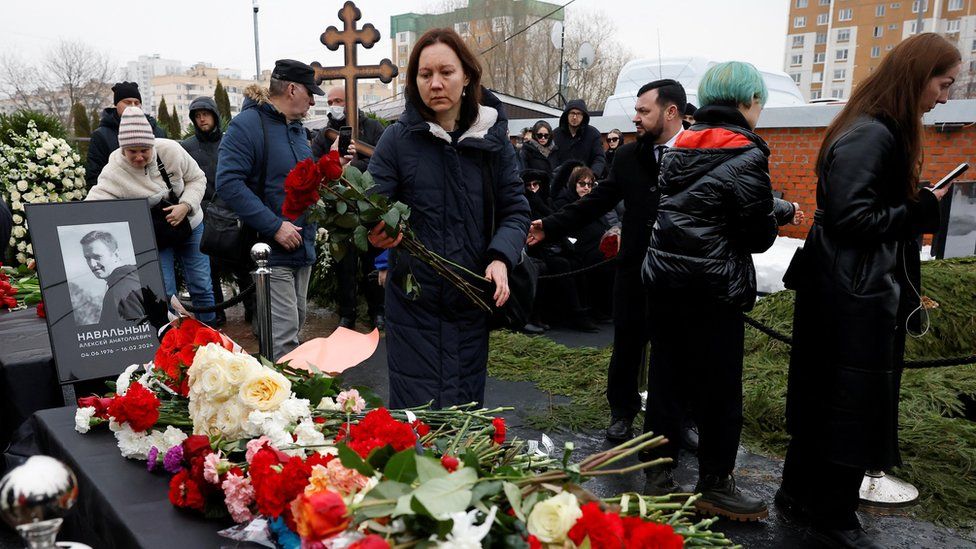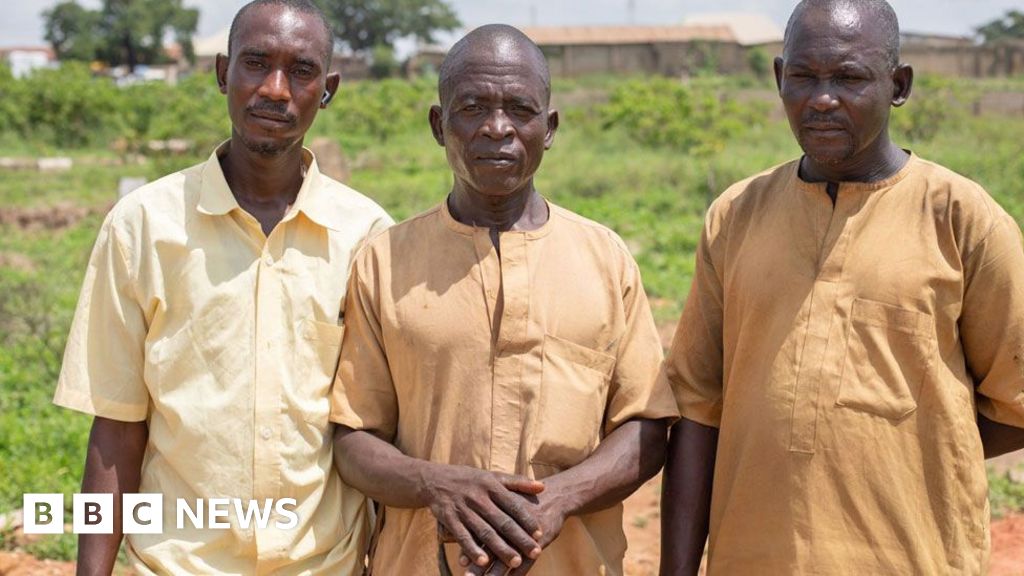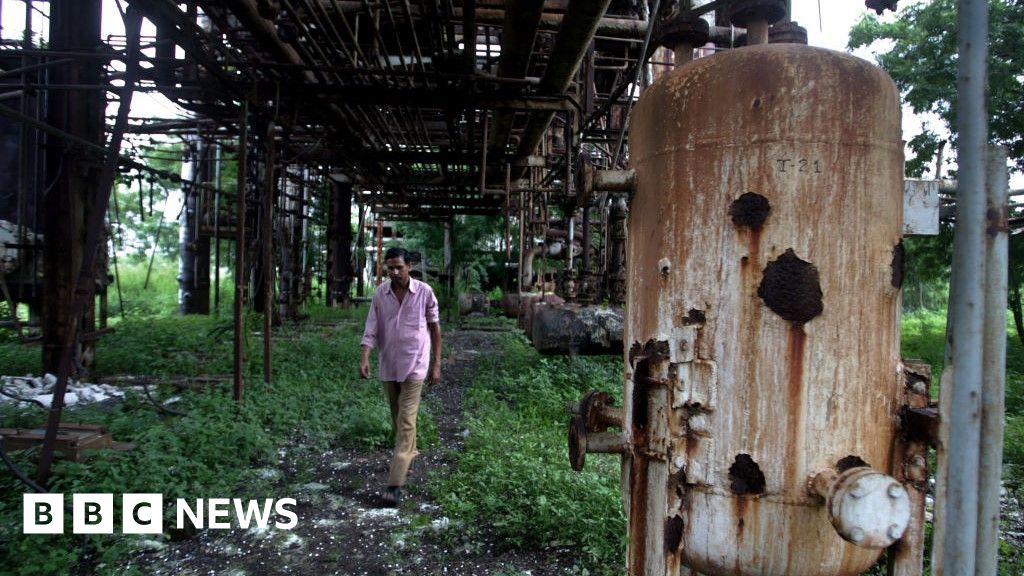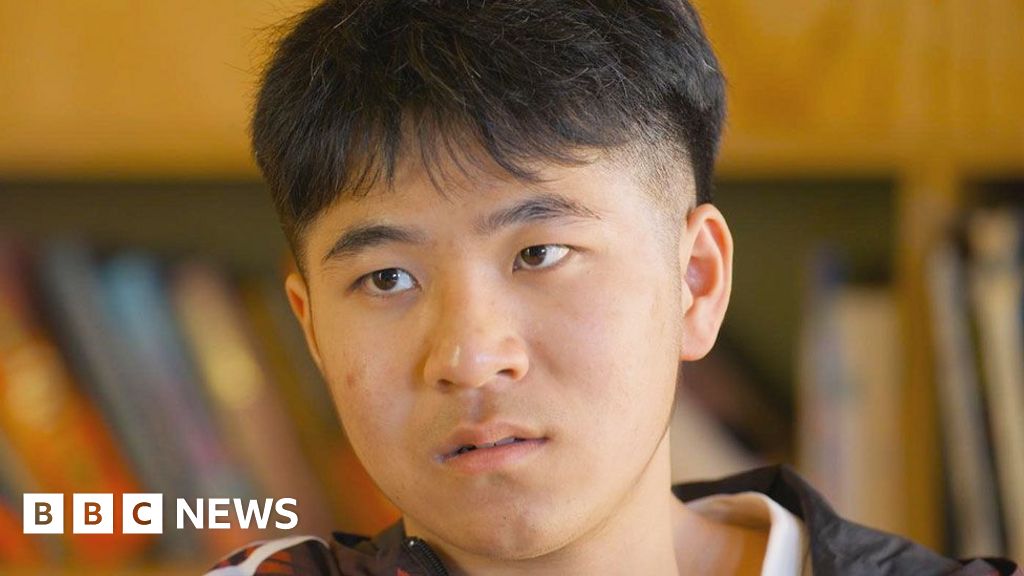ARTICLE AD BOX
 Image source, Reuters
Image source, Reuters
A steady stream of people laid flowers on Navalny's grave at Borisovskoye cemetery
Thousands of Russians have defied fear to turn out to bid farewell to opposition leader Alexei Navalny.
President Vladimir Putin's most vocal critic died in jail on 16 February.
Authorities had warned any protest would be illegal. But police - deployed in numbers - stood by as the crowd chanted Navalny's name, or their opposition to the Russian president.
Supporters and relatives, as well as many foreign leaders, have blamed Mr Putin for his death.
Russian authorities deny any such accusation, saying Navalny died of natural causes. He had been serving a long sentence on trumped-up charges in a penal colony in the Arctic.
Russian authorities deny any such accusation, saying Navalny died of natural causes. He had been serving a long sentence on trumped-up charges in a penal colony in the Arctic.
It was feared that the authorities would crack down on Friday's funeral proceedings.
Indeed, on Friday morning a heavy police presence was visible in Maryino, the area of Moscow where the funeral was held - and where Navalny lived with his family for many years.
At one point, Navalny's team estimated that the line of people stretched well over 1km (0.6 miles), despite the grey winter's day in which temperatures hovered at just above freezing.
Yet none of the policemen - many of whom were in full riot gear - intervened when expressions of support for Navalny became overtly political.
Thousands chanted out "no to war", "Russia without Putin" and "Russia will be free" - slogans that have previously landed many Russians in jail.
The memorial service began just after 14:00 Moscow time (11:00 GMT) at the Church of the Icon of Our Lady Quench My Sorrows.
It followed much uncertainty and complaints by Navalny's team that the authorities had been making the arrangements difficult - even finding a hearse was an issue.
However, hundreds started to arrive hours before proceedings were meant to begin. They were later joined by foreign dignitaries, including the US, German and French ambassadors.
Image source, EPA
Image caption,Thousands of people gathered in the Maryino district of Moscow to pay their last respects to Alexei Navalny
The ceremony inside the church was brief - an image on social media showed the open coffin that is commonplace in Russia, with mourners paying respects. Navalny's mother, Lyudmila, and his father, Anatoly, were seen sitting alongside.
As the church bell tolled and Navalny's coffin was brought outside, people tossed roses and carnations onto the hearse and cried: "We won't forget you!"
Several people approached Lyudmila after the service ended and hugged her, saying: "Thank you for your son" and "forgive us".
Navalny's widow Yulia, his children Daria, 23, and Zakhar, 15, and his brother Oleg - are all thought to be living abroad and were not present.
Yulia has recently declared she is going to continue his political work - meaning it is possibly unsafe for her to return to Russia, where Navalny's Anti-Corruption Foundation has been declared an extremist organisation.
She shared a poignant tribute on social media while the funeral was under way, thanking Navalny for "26 years of absolute happiness".
"I don't know how to live without you, but I will try to do it so you - up there - can be happy and proud of me," she said.
In the absence of an independent Russian media, Navalny's team at the Anti-Corruption Foundation took it upon themselves to provide a live stream of the funeral ceremonies.
The YouTube channel from which Navalny regularly addressed his supporters broadcast scenes from his funeral. More than a quarter of a million people tuned in throughout the day.
The burial finally took place at Borisovskoye cemetery around 16:00.
Navalny's coffin was lowered into the ground to the sound of Frank Sinatra's My Way and to an orchestral rendition of the Terminator 2 theme song. "Navalny thought The Terminator 2 was the best film in the whole world," his spokeswoman Kira Yarmysh said on social media.
As dusk fell, people carried on queuing outside the cemetery, where a sign was hung, reading: "Putin killed him but didn't break him."
"It's not time to be a coward. Those people in our government are cowards because they are afraid of us," a mourner told the BBC's Newshour. "We are only people with flowers and graves. That's all."
By Friday evening, 45 people had reportedly been arrested across Russia for joining Navalny memorial events.
By and large, however, the harsh, widespread crackdown many had feared did not materialise. In comparison, the authorities' response to people laying flowers at makeshift memorials in the wake of Navalny's death had resulted in several hundred arrests.
It is possible that police will seek out some of those who attended today's proceedings in the days to come. Earlier this week, it was reported that surveillance cameras had been installed on the perimeter of the cemetery.
Ahead of the funeral, First Department - a group of lawyers and human rights defenders - had warned that detentions after the ceremony "could not be ruled out" and advised mourners to "stay under the radar of security forces - do not use public transport or apply for paperwork in the days after the funeral."
Online initiatives, like a website where users can light a "virtual candle" for Navalny, have attracted hundreds of thousands of participants.
Today's was likely the largest opposition gathering in Russia since Navalny's jailing in January 2021.
Many of the mourners might have felt it was their last chance to gather with thousands of like-minded people.
For almost a decade, Navalny was able to organise protests and marches that often attracted tens of thousands in Moscow and beyond.
With him now gone, it is unclear who else could possibly attract the kind of popular support he was able to muster.

 10 months ago
111
10 months ago
111








 English (US) ·
English (US) ·